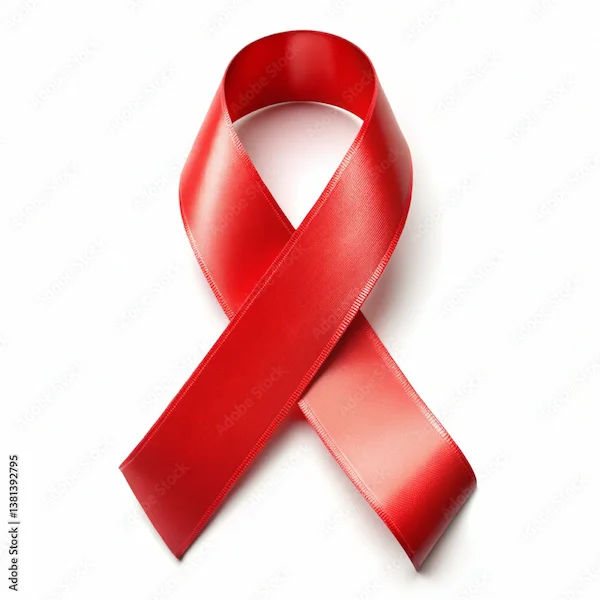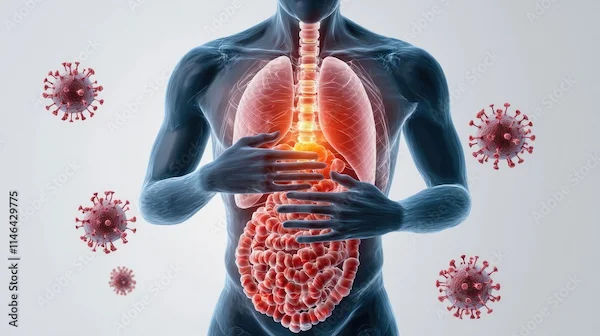Symptoms of HIV and AIDS
Learn the early and advanced symptoms of HIV and AIDS, how the virus is transmitted, and how to manage it with early testing, treatment, and healthy living.

Written by Dr. Siri Nallapu
Reviewed by Dr. Dhankecha Mayank Dineshbhai MBBS
Last updated on 24th Jul, 2025

HIV (Human Immunodeficiency Virus) and AIDS (Acquired Immunodeficiency Syndrome) are serious health conditions that affect the immune system. While HIV is the virus that can lead to AIDS if left untreated, AIDS is the most advanced stage of HIV infection. Understanding the symptoms, causes, and ways to manage these conditions is crucial for early detection and better health outcomes.
What Are HIV and AIDS?
HIV is a virus that attacks the body’s immune system, specifically the CD4 cells (T cells), which help fight infections.
AIDS occurs when HIV severely damages the immune system, making the body vulnerable to life-threatening infections and cancers.
With proper treatment (antiretroviral therapy or ART), people with HIV can live long, healthy lives and prevent the progression to AIDS.
Early Symptoms of HIV
Many people experience flu-like symptoms within 2–4 weeks after contracting HIV. This stage is called acute HIV infection and may include:
Fever
Chills
Night sweats
Fatigue
Swollen lymph nodes
Sore throat
Muscle aches
Rash
Mouth ulcers
These symptoms can last for a few days to several weeks and are often mistaken for the flu or a common viral infection. However, not everyone with HIV experiences these symptoms, which is why testing is important.
Later Symptoms of HIV (Chronic Stage)
If untreated, HIV progresses to a chronic stage, where symptoms may become more persistent:
Persistent fatigue
Rapid weight loss
Frequent infections (yeast infections, pneumonia, tuberculosis)
Diarrhoea lasting more than a week
Skin rashes or bumps
Short-term memory loss
Symptoms of AIDS (Advanced HIV Infection)
Without treatment, HIV can lead to AIDS, where the immune system is severely damaged. Symptoms at this stage include:
Severe and recurring infections (like tuberculosis, meningitis)
Extreme weight loss (wasting syndrome)
Chronic diarrhoea
Sores in the mouth, anus, or genitals
Neurological disorders (confusion, memory loss)
Certain cancers (Kaposi’s sarcoma, lymphoma)
How Is HIV Transmitted?
HIV spreads through certain body fluids, including:
Blood
Semen
Vaginal and rectal fluids
Breast milk
Common ways of transmission:
Unprotected sex (vaginal, anal, or oral)
Sharing needles or syringes
From mother to child during pregnancy, birth, or breastfeeding
Blood transfusions (rare in countries with screened blood supplies)
HIV does not spread through casual contact like hugging, shaking hands, or sharing food.
Consult a Top Physician For More Health Benefits
How to Manage HIV and Prevent AIDS
Let's see how to manage HIV and prevent AIDS:
1. Get Tested Regularly
Early detection is key. If you suspect exposure to HIV, get tested immediately. Apollo24|7 offers confidential HIV testing—book a test from home or visit a lab.
2. Start Antiretroviral Therapy (ART)
ART helps control the virus, keeping the immune system strong and preventing AIDS. With proper treatment, people with HIV can live normal lifespans.
3. Practice Safe Sex
Use condoms consistently.
Consider PrEP (PreExposure Prophylaxis) if at high risk.
4. Avoid Sharing Needles
If using injectable medications, always use sterile needles.
5. Maintain a Healthy Lifestyle
Eat a balanced diet (rich in fruits, vegetables, lean proteins).
Exercise regularly to boost immunity.
Avoid smoking and excessive alcohol.
6. Regular Medical Checkups
Monitor CD4 count and viral load with your doctor to ensure treatment effectiveness.
When to See a Doctor?
If you experience any early HIV symptoms or suspect exposure, consult a doctor immediately. Early treatment can prevent complications.
Book a Consultation or HIV Test on Apollo24|7
If you have concerns about HIV or AIDS, Apollo24|7 provides expert consultations and lab tests for early detection and management. Schedule a test today for peace of mind.
Conclusion
Living with HIV is manageable with the right treatment and lifestyle changes. Awareness, early testing, and medical care can help prevent AIDS and ensure a healthy life. If you or someone you know is at risk, don’t hesitate to seek help—timely action makes all the difference.
Consult a Top Physician For More Health Benefits
Consult a Top Physician For More Health Benefits

Dr. J T Hema Pratima
General Practitioner
9 Years • MBBS
Chennai
Apollo 24|7 Clinic - Tamilnadu, Chennai
(250+ Patients)

Dr. Jawwad Mohammed Kaleem
General Practitioner
4 Years • MBBS
Hyderabad
Apollo 24|7 Clinic, Hyderabad

Dr. Shesham Srinidhi
General Practitioner
5 Years • MD(physician)
Hyderabad
Apollo 24|7 Clinic, Hyderabad
(100+ Patients)

Dr. Vasanthasree Nair
General Practitioner
15 Years • MBBS
Angamaly
Apollo 24|7 Clinic - Kerala, Angamaly
(425+ Patients)

Dr. Siri Nallapu
General Practitioner
5 Years • MBBS
Hyderabad
Apollo 24|7 Clinic, Hyderabad




